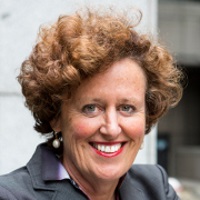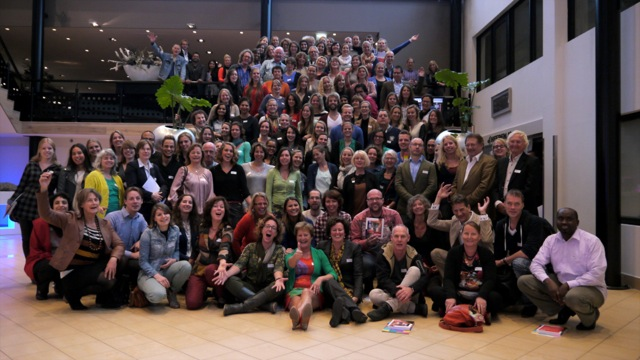Onze experts
Componence Asset List
Sandra Kooij

In 1995 begon Sandra Kooij met onderzoek naar methoden voor diagnostiek en behandeling van ADHD bij volwassenen. Sandra Kooij was een van de eerste psychiaters in Nederland die signaleerde dat ADHD ook bij volwassenen voorkwam. Zij promoveerde op het proefschrift: 'ADHD in adults. Clinical studies on assessment and treatment' (2006). Sinds 2020 is zij bijzonder hoogleraar ADHD bij volwassenen bij afdeling psychiatrie van Amsterdam UMC/VUMc. Dit ambt aanvaardde Sandra middels oratie ‘Tijd voor ADHD, ADHD & tijd’ op vrijdag 30 september 2022.
In 2002 richtte zij afdeling 'ADHD bij volwassenen' op bij PsyQ in Den Haag tezamen met het scholings- en onderzoeksinstituut Kenniscentrum ADHD bij volwassenen. Sinds 2008 heeft Afdeling en Kenniscentrum een TOPGGz erkenning voor excellente patientenzorg, onderzoek en onderwijs. Sinds 2013 heten Afdeling en Kenniscentrum ‘ADHD bij volwassenen en ouderen’, nav uitbreiding van de behandeling naar patienten met ADHD boven de 60 jaar.
Sandra Kooij is voorzitter van
-
The European Network Adult ADHD, dat onderzoekers en behandelaars van patiënten met ADHD in 28 landen bijeenbrengt. Lees hier een publicatie van het European Network: Updated European Consensus Statement on diagnosis and treatment of adult ADHD | European Psychiatry | Cambridge Core (2019).
-
The international DIVA Foundation, die zich inzet om het Diagnostisch Interview voor ADHD bij volwassenen (DIVA-5) dat bij PsyQ Den Haag werd ontwikkeld, te vertalen in 29 talen en tegen geringe kosten ter beschikking te stellen ten behoeve van zorgvuldige diagnostiek van ADHD bij volwassenen wereldwijd.
En
-
Auteur van 7 boeken over ADHD (ADHD bij volwassenen: Diagnostiek en behandeling/ Adult ADHD. Assessment and treatment/ Hyper Sapiens / Over medicatie voor volwassenen met ADHD/ Adult ADHD. Clinical studies on assessment and treatment. Proefschrift/ In kort bestek/ Lotgenotenproject. ADHD’ers voor elkaar.
-
‘Boegbeeld’ van de TOPGGz afdeling ADHD bij volwassenen en ouderen, PsyQ den Haag.
English summary 'Development Expertise Center Adult ADHD in The Netherlands'
A blog, published (july 2018) on the website of The American Professional Society of ADHD and Related Disorder
In 2002, I founded Program and Expertise Center Adult ADHD at Parnassia, later PsyQ, the Hague, The Netherlands. The aim was to serve patients, to teach collegues in assessment and treatment, and to do research to increase knowledge on this highly frequent disorder in adult psychiatry (www.psyq.nl). We started with a team of 5 professionals and 100 adult patients, and we currently treat around 1000 patients annually with a team of 45 professionals. Meanwhile PsyQ, a mental health care provider that offers specialized programs for 10 disorders, expanded to 34 locations around the country, and we got the chance to educate every team about adult ADHD. In addition, every referred patient was screened for ADHD (and other disorders) before entering the system. This way, matched care was delivered, even when patients or their GPs were not aware of their condition(s). This pioneering process is described in more detail in my book Adult ADHD. Diagnostic Assessment and Treatment (2017, Springer).
The team had to develop everything, from the Diagnostic Interview for ADHD in adults (DIVA-5), to methods for psycho-education, medication management, coaching and group CBT, as well as implement new tools based on research, such as a protocol for treatment of older people with ADHD and assessment and treatment of sleep disorders in ADHD.

ADHD Network
Meanwhile, we had started the Adult ADHD Network for professionals, that later fused with the Child ADHD Network of pediatricians and psychiatrists. This new ‘ADHD Network‘ reflects the lifespan perspective of ADHD (www.adhdnetwerk.nl).
European Network Adult ADHD
Also the European Network Adult ADHD (ENAA) was founded in 2002, to exchange knowledge and experience, and inspire professionals in the same pioneering position around Europe. ENAA currently unites 74 professionals from 28 countries (www.eunetworkadultadhd.com). This network published its first Consensus Statement on Diagnosis and Treatment of Adult ADHD in 2010. The updated, open access version can be found here: Updated European Consensus Statement on diagnosis and treatment of adult ADHD | European Psychiatry | Cambridge Core.
DIVA Foundation
The DIVA Foundation started distributing the DIVA 2.0 in Dutch for free from 2007, to lower the threshold for appropriate assessment of ADHD in adults. The interview is available in 29 languages worldwide (www.divacenter.eu) and counting. The DIVA has been validated in several studies and languages. The next edition, DIVA-5, is based on the DSM-5 criteria.
Top Mental Health acknowledgement
In 2008, the Program and Expertise Center was acknowledged the Top Mental Health status in the Netherlands (www.topggz.nl), for excellent patient care, innovative research and education on adult ADHD. The work of the team is re-evaluated every 3 years and has prolonged this Top Mental Health acknowledgement up to today.
Research
Our research at the Expertise Center Adult ADHD in close cooperation with the Dept. of Psychiatry at Amsterdam UMC/ VUMc in Amsterdam, is currently focused on late sleep in ADHD and the impact on health in the long term, as well as on hormonal mood changes during the lifespan in women with ADHD. Older people (> age 60) were shown in our research to still suffer from ADHD in around 3% of the Dutch population, and we developed a treatment protocol for this age group.
Education
The Expertise Center Adult ADHD educates mental health care professionals and GPs annually with 20 (inter)national courses and several lectures at symposia on assessment and treatment of ADHD in adults and older people, and currently with a new course on Sleep, health and ADHD.
The Expertise Center participated with the ADHD Network in:
– Online national education on adult ADHD for residents in psychiatry
– The Dutch Guideline for ADHD in adults of the Dutch Organisation of Psychiatry, that was published in 2015.
And several other initiatives on education of professionals and patients.
Digital Medicine: Super Brains app for ADHD
Next step is to improve access to care for the unmet need of ADHD patients by Digital Medicine: the ADHD app Super Brains, that can be used by patients on their own, as well is for blended care during professional treatment. The app contains self-tests, psycho-education on ADHD and comorbidities, coaching and CBT interventions, reminders, video chats, communities with other experience experts and professionals, lifestyle habits, and gamification. Treatment will be more intensive, more effective and of shorter duration. The idea for Super Brains comes from an ICT company owner with ADHD, Rutger den Hollander, who wanted to develop digital medicine for himself, his family, and the rest of the world. PsyQ is investing in its development, and insurance companies are adopting the concept. Super Brains is available for free in the App store or Google play store. Other patient groups may use and adjust the app to their needs.
